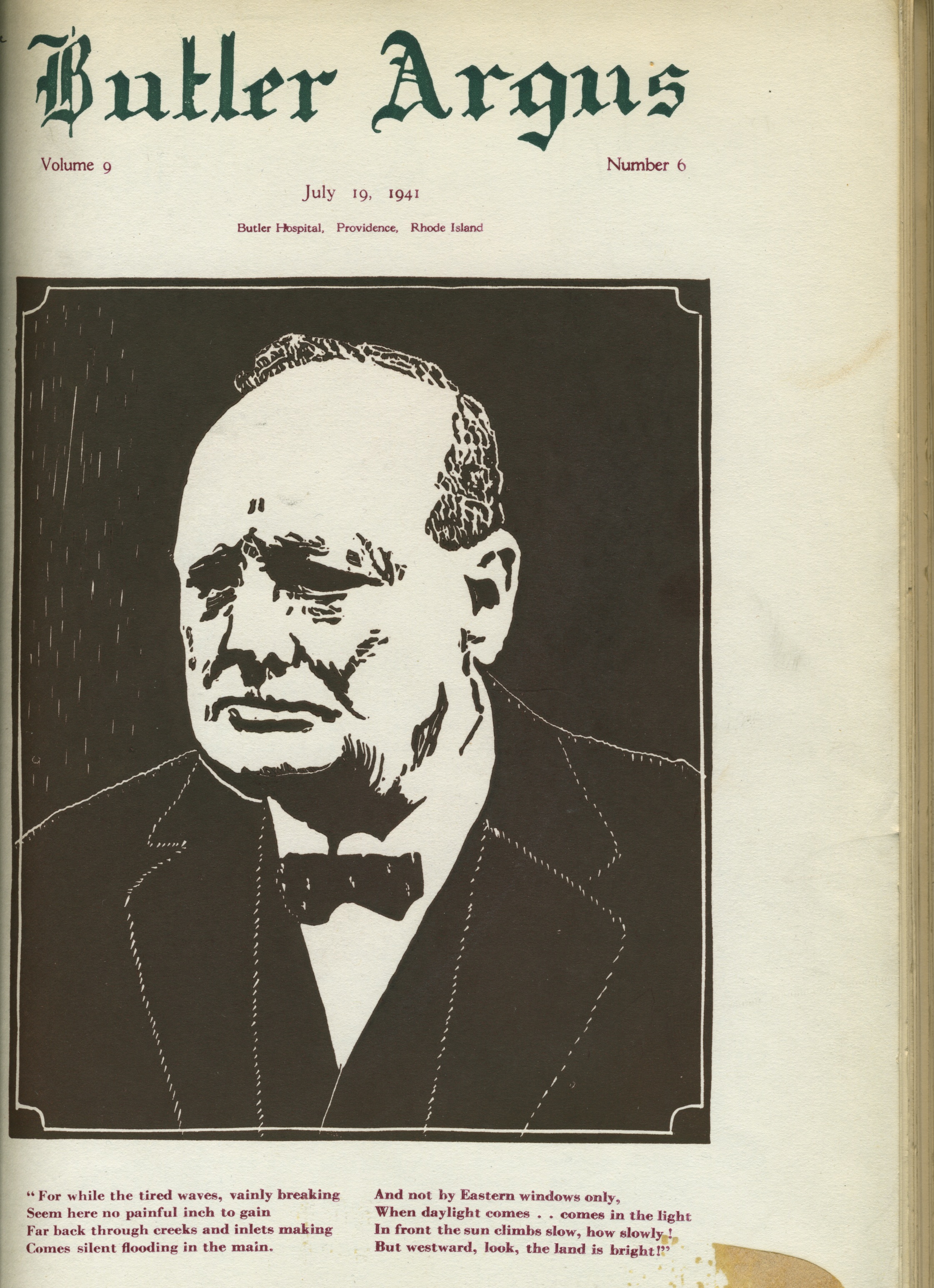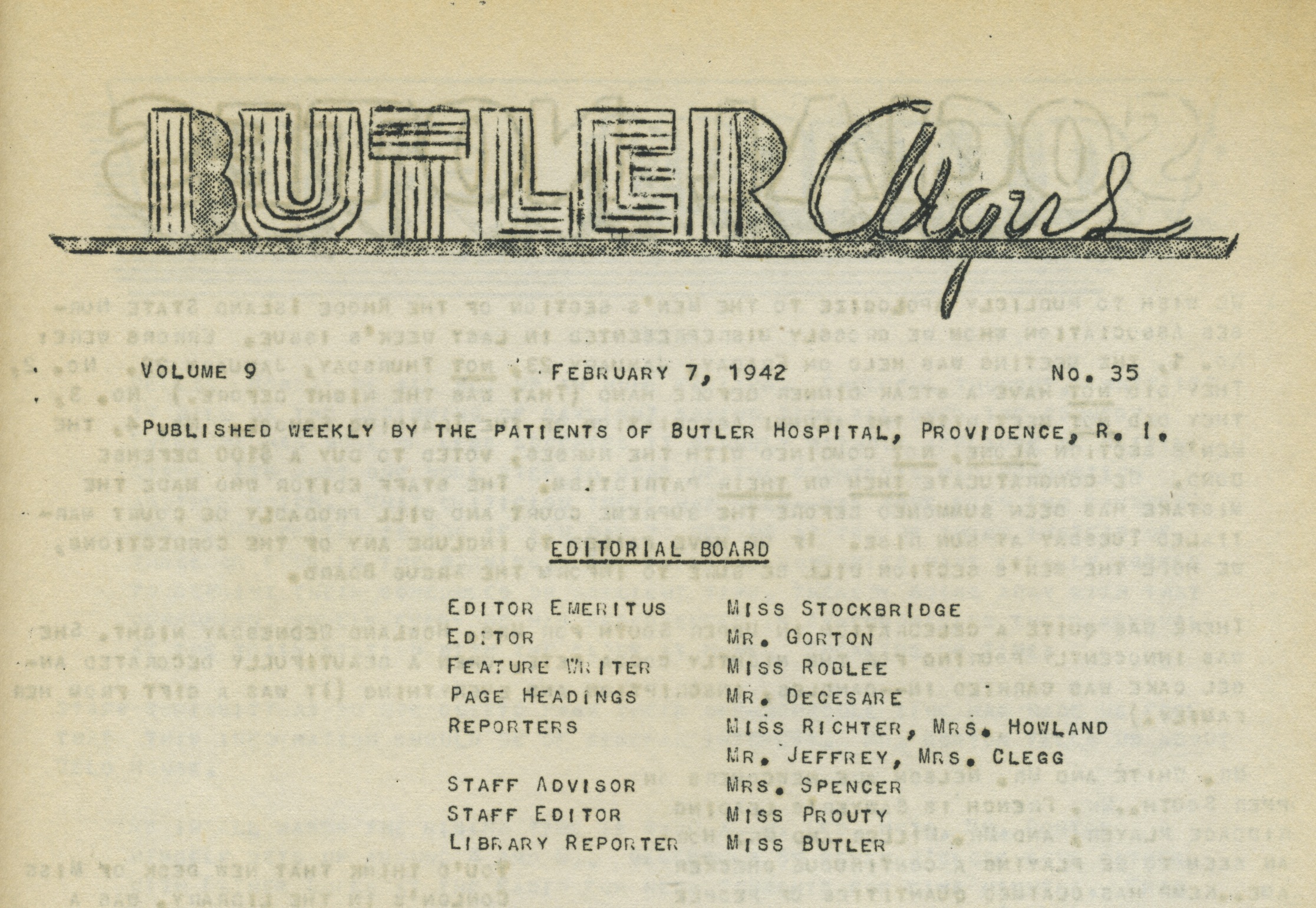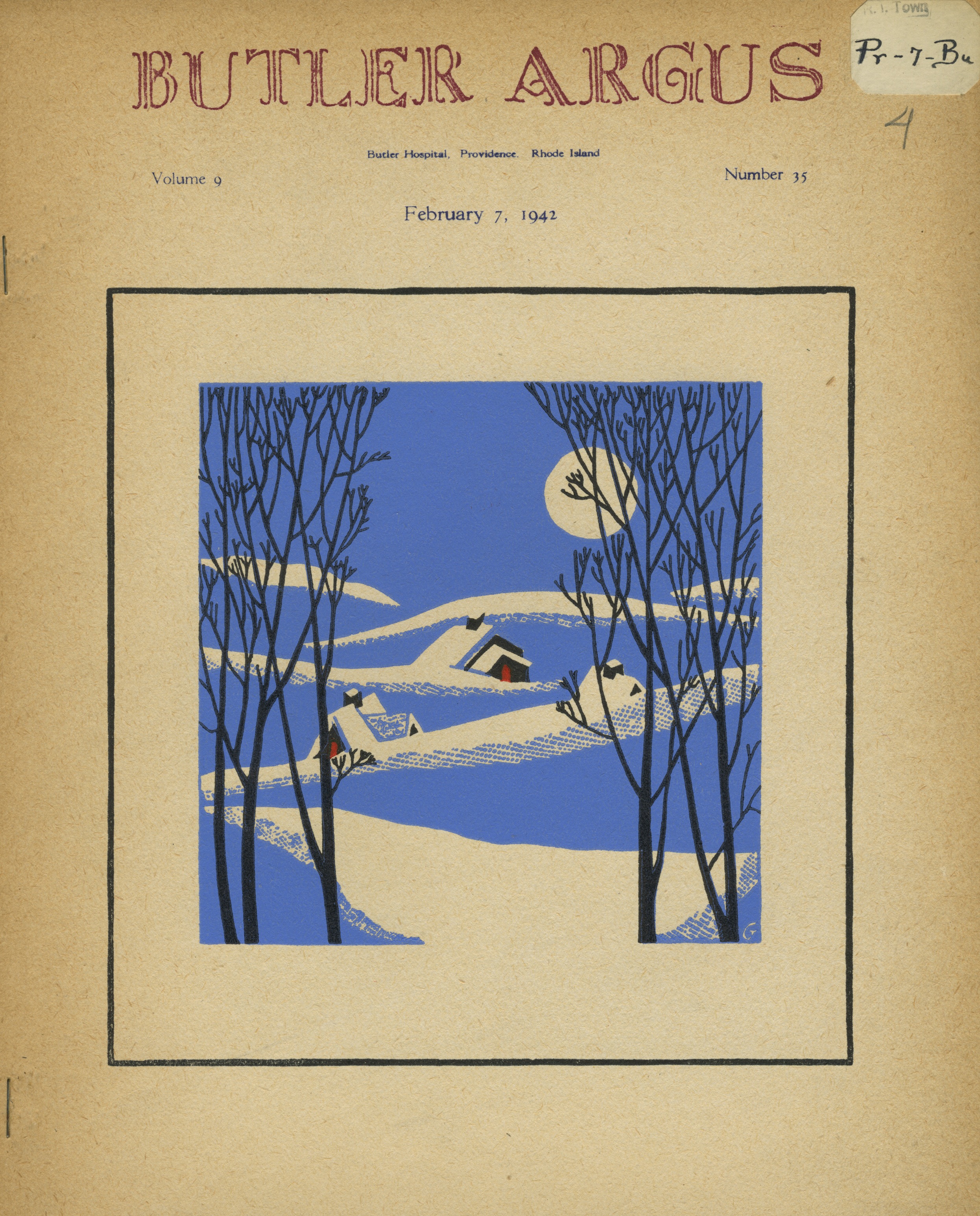As winter comes to its end we are reminded that even the darkest days of snow and ice eventually thaw. Today we feature an expression of hope from some of the former patients of Butler Hospital in Providence. The RIHS library holds the only known copies of the Butler Argus, a magazine that was written, illustrated and mimeographed at the Butler Hobby Print Shop within the hospital. It featured a social column, poetry, book reviews, logs of remembered travels and striking, color linocut covers that usually feature a seasonal theme. Our holdings range from 1940-1945.

Many political scientists and mental health professionals have speculated on the effect of Churchill’s depression on his politics and strategies. According to psychiatrist Anthony Storr: “Only a man who knew what it was to discern a gleam of hope in a hopeless situation, whose courage was beyond reason and whose aggressive spirit burned at its fiercest when he was hemmed in and surrounded by enemies, could have given emotional reality to the words of defiance which rallied and sustained us in the menacing summer of 1940.”

Named for Cyrus Butler (1767-1849), Butler Hospital for the Insane was founded in 1844 as one of the first institutions in the U.S. devoted to the treatment of mental illness. Dorthea Lynde Dix (1802-1887) made the establishment of Butler part of her crusade for humane and scientific treatment of people with mental illness. Patients lived on 114 acres of wooded grounds along the Seekonk River and had access to a library, art studio, gymnasium and psychiatric treatment. The print shop was part of occupational therapy.

In 1902 the name was changed to just Butler Hospital until it closed in 1955. It reopened in 1957-1961 as Butler Health Center when the name was formally changed back to Butler Hospital by which is still known today.
The Argus is also filled with plenty of humor, such as this line from the “Chatter” page in May 2 of 1942: “Bids are open for names for the baby squirrel Ray Hall has acquired—so far he’s being called ‘nuts.”
~Phoebe Bean, Librarian
